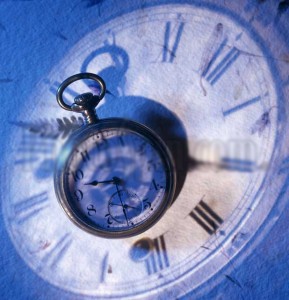Observations: Lord Of The Time Lords
Yes, that’s exactly the reference it appears to be. 0=)
Just for reference, this is a bit of a throw-back to Inherently Religious (Some things are sacred by default, no matter our efforts to ‘secularize’ them) and Speculating Faith (The Speculative genre should be the safest place in the fiction world to ask ‘what if,’ and that includes discourse on what God is not).
I feel like I’ve been thrown into several conversations lately on God: who and what he is, what he’s like, what he’s not like–the very nature and character of God himself. I recently did a three-part segment on my personal blog titled Painting God in which I tried to demonstrate how little we know of him, and how to paint over what he’s painted for us is to attempt to change his nature–all only to discover several other people were posting on the same thing.
The world aligns a particular way once you’ve started to feel you’ve some grasp on who your God is. I have no delusions I’ll ever exhaust the great adventure that is getting to explore the depths of my Creator and Sustainer, but I feel comfortable enough saying I’ve a pretty general idea of the core of his nature. He spent a significant amount of time trying to explain and describe himself, so I don’t think it impertinent to number myself among those who’ve tried to pay attention.
I surmised at one point that speculative fiction is a legitimate place (or should be) for rooting out characteristics that make up the Person who created the cosmos. For better or worse, I still maintain the veracity of the claim.
I’ll be honest: I’m one of those weird people who really doesn’t go looking for theology in a story. If I see something, it’ll capture my attention for weeks. If I don’t, well, it was just a book/movie anyway. It’s not watching with my brain off: it’s not like I won’t notice a particular slant. It’s that unless I’m having something crammed down my throat or something has become grotesque in nature, I’m in it for the long haul. But that said, I’ve found shards of light in the strangest places. I’ve mentioned Elf, despite its flaws. Star Wars and the Matrix are both used ad nauseum (even though I’d take significant issue with Neo being any form of ‘Christ figure.) A few other s, at least for me, included:
-The Lakehouse (due to the time/space nature of it, the woman must wait for her love to provide the means for them to be together; all attempts by her to force or accelerate the matter only make them further apart; her lover alone–and they know each other only through letters–can make it work)
-Sweet Home Alabama (she leaves him; and he waits years for her to come back)
-Doctor Who (details below)
-The Dresden Files (Harry was trained by evil wizards; he’s easily tempted by evil, but he’s also repulsed by it; and the one person whom even Harry would call righteous is a Christian guy who tolerates but never condones Harry’s magic; and, oddly, Michael is someone Harry wishes he were like; yes, I know some of the content in the DF is pretty solidly on the edge of my tolerance, but I’ll still make the point with Harry suspended between good and evil.)
-Criminal Minds (often includes lengthy conversation on good, evil, and the human condition)
-Human Target (former assassin seeking repentance by protecting people, includes a team of misfits and, well, some shady guys)
-Leverage (The pilot sold me with Nate’s lines about halfway through: “Each of you knows what you can do. But I know what all of you can do.” Broken and falling off a cliff himself, Nate, in essence offers them a new way of life to embrace or reject at will.)
Now, I know those connections likely weren’t intentional (although, with Jim Butcher, I’d be more surprised if he didn’t intend Michael that way), but it doesn’t mean I didn’t see them. Why aren’t there more book titles? Um, honestly, I’m still a newbie to the “secular” book world and I needed examples from guys who aren’t, to my knowledge, professing Christians.
The horse is dead, so I’ll let the point be: All storyworlds tell us something about the way the way the world is, and invite some form of solution. There’s a reason something in our gut lights afire when we see injustice and oppression, and there’s a reason we get such immense satisfaction out of seeing justice done and mercy extended.
What God is Not
So on to the title. As I said, it’s not like I don’t see the flaws in the shadows, the faint illustrations. Nate’s a drunk and a liar. Harry’s a player. And so on. But in the same way we can generate discussion on who God is, we can generate it on who God isn’t.
Honestly, I’m convinced the new Doctor Who show does that wonderfully. (Minor aside: I’m a late-comer to Doctor Who. I started with the Season 1 relaunch a couple months ago, and I’ve finished through season two and begun season three. The pilot episode didn’t endear me to the show, and since then there’s been one other episode (season two, the Satan Pit, if you care) that I didn’t care for). It’s arguably a very humanistic show, and by and large gets away with it because the Doctor is fascinated with humans and their capabilities, emotions, vulnerabilities, and so on. What makes humans strong also makes them weak, so to speak.
Now there’s a few things on the Satan Pit episode:
- A 900 year old man should have some idea of what he believes. (I will ignore what I maintain is a character breach in that episode for now.)
- Despite the rather silly claim he doesn’t know what he believes, the Doctor actually does have a pretty black and white view of right and wrong. How he executes that sense of justice/revenge is another question, but for the most part he comes down pretty solid on the dignity of all people and their inherent right to live as free people.
So, on that front, while he does make the silly comment (sorry, Whovians, it was quite absurd) that he doesn’t know what he believes or who he believes in, deity-wise, he’s quite clear on what is not divine. Ruling by fear, conquest, chain, and whip is the dominion of Hell, not Heaven. Destroying people’s lives and livelihoods for your own gain is evil. Setting yourself up as a false god is evil, and the false god must be destroyed.
The other interesting point is that while others describe the Time Lords as somewhat godlike, the Doctor himself makes it known he is not, nor does he set out to be, a god. “I’d make a very bad one,” he says. And with that dark streak in him, he really would.
Anyway, I didn’t set out looking for any of this. But after writing those earlier posts and thinking on it awhile, then running across Doctor Who upon the prompting of a friend, I found that it very neatly seems to illustrate my point (for now, at least). I definitely wouldn’t take it much further than that, as it really isn’t the show’s intent and they fudged what could have been a very profound moment in the particular episode. (They backed off the question. As a writer, I think they were better off not bringing it up if they feared losing some of their audience, or letting the Doctor answer more solidly than he does.) But the themes of human nature and divine nature have continued to appear in the thematic sense, and I find the exploration intriguing.
So I guess this is the end of it: Even the Time Lord knows he’s bound to something bigger and older than himself. Even the Time Lord submits to the Lord who made the time and space he plays in and protects.












































Fantastic column, Kaci!
Every humanistic story, worldview or origins belief must, at some point, borrow something from Christianity to survive. Thus humanism demonstrates that while it can be a cool religion (but a religion), it can’t sustain itself with its own tenets. And Doctor Who, with all its messianic allusions — yes, they continue; watch for a particularly intense one, almost too much, in the Christmas special Voyage of the Damned — just keeps proving that over and over.
I think it’s worth talking about the Christ-imagery that Russell T. Davies insisted on attaching to the Tenth Doctor during the third and fourth seasons of his tenure, as some of it struck me as fairly blasphemous (perhaps not surprising from the writer of “The Second Coming”) and really inappropriate given the way Ten’s character developed.
What I mean by this (and I’ll try to keep it general, as I don’t want to spoil anything for Kaci) is that it seemed that the LESS righteous and selfless Ten’s character and behaviour became, the closer he came to arrogantly embracing that “Lonely God” title RTD had bestowed upon him earlier in the series and appointing himself judge, jury and executioner over the universe, the more Davies started hyping up the Christ imagery. But usually a Christ figure is one who suffers unjustly, selflessly, and in order to bring salvation or enlightenment to others; whereas the Tenth Doctor’s sufferings seemed to achieve nothing in particular and were largely brought on by his own actions. No Gethsemane moments, no courageous silence in the face of his accusers, no sovereign plan that would bring light into the darkness — just a lot of emo Man Pain.
By contrast, once the Eleventh Doctor came on board in S5, new head writer Steven Moffat used little or no Christ imagery at all, and yet I’d say that Eleven is in some ways (again keeping this vague!) more Christlike than either of the previous two in some of his actions and the way he regards and treats people. Without the need for blatant crucifixion imagery and mechanical angels to back it up.
Getting back to the actual topic, however — in the Doctor Who New Adventures novels which were written in the 90’s (when it seemed that the show had been cancelled and would never return, so print was the next best option), some of the earliest books in the series featured a pantheon of gods worshipped or at least respected by the Time Lords — Time, Death, and Pain. Interesting.
I didn’t know that about RTD, but it explains some things. at any rate, like I said, I wouldn’t take it any farther than I did – the Doctor is no Christ figure. And likely some things I find palatable strictly because he resists the ‘god’ thing, so we’ll see how that plays out in three and four. It’s one of those weird things where the series has potential it will never reach for reasons such as you mentioned.
Thank you for the quite brilliant avoidance of spoilers. 0=) I probably already know too much on some things.
Edit: And on who the Time Lords revere, honestly, at that point in the Satan Pit episode, I’d have accepted “I serve Time” or even “I serve the Time Lord Laws” — anything but “I don’t know what I believe, but I believe in Rose Tyler!” on multiple grounds. So far my biggest beef is that everything is wrong in that scene. From a writer’s perspective if nothing else. I knew what I believe back in middle school. I cannot accept “I don’t know” from a grown man over 9 centuries old.
But I’ll go into rant mode if I don’t quit.
Again, thanks so much.
(Odd; your second comment doesn’t give me the option of a reply for some reason, so I’ll reply to this one instead.)
I have big, big problems with that “…but I believe in Rose Tyler!” line myself, Kaci. You’re right, it’s a jarring false note. It’s not that I want the Doctor to outright declare his beliefs (because if the writers did that, I suspect they’d come down the side of “science=atheism” and that would be disappointing) but I’d like to see something a little less wishy-washy than that!
I can’t wait to find out what you think of Series 5 when you get there… *draws little hearts and flowers all around it*
RJ, I didn’t neglect this in my newest one. I’m saving my season 4/5 posts. Course, I think we talked through most of it via Facebook. 0=)
Doctor Who is such a grab bag of so many people’s worldviews and ideologies, it’s difficult not to ascribe whatever you want to it. I confess that it’s one franchise that I watch mainly for the sheer audacious, popcorn-laden romp, and hold at a very generous arms’ length for spiritual resonance. I’m also with RJ Anderson in preferring Moffat’s take much more than Davies (so far, anyway).
But I am one of those people who notices parallels of God everywhere I turn. I believe it’s written into the fabric of every human being, whether they acknowledge it or not. The scriptures say that God will use what man intends as defamation to glorify himself even further, and that if we left off praising him then he would cause the very stones to cry out in praise.
I really enjoyed reading Joseph Campbell’s work in college, amused by his astonishment at the uniformity of themes in human mythology, his marveling at how they could be so universal, and chuckling to myself. What fascinated me most was his observation (and I’d have to go back and find exactly which of his works this was in), that the Cinderella story was the most common story thread in all of humanity. Cinderella is a story of the redemption of a bride from abjection. Sound familiar?
I think the most wonderful experience I’ve ever had along these lines was when I was watching Forrest Gump for the umpteenth time. I’ve always loved Forrest Gump more than just another good movie, and I never really could articulate why. Then I was watching the scene where he’s telling Jenny about all the beautiful things he saw in his travels. “I wish I could have been there,” she says, full of regret at the bad circumstances and choices that made her life the complete opposite of his. He looks at her and says, “You were.” And then it hit me. Forest looks at Jenny and honestly does not see everything she’s done. All he sees is the woman he loves. The rest of it does not exist. It’s the way that Christ sees us when we are under the atonement. The sin literally does not exist for him. He can’t condemn what isn’t there. It was such a beautiful parallel that I started crying.
Anyway, interesting topic. I’m working my way through Leverage right now.
I wandered onto this post only because of the title, but found this post interesting, and plan to repost it on my Whovian blog. (linked to in my name)
I just started watching DW over Labor Day 2010, but have watched all the new series and some of the classic seasons too. I also admit to wondering about some of the theological implications of the show and its appropriateness for Christian viewers.
The classic series doesn’t really use this imagery as much, partially because the Doctor isn’t the last of the Time Lords there. Season three’s ending definately plays up the Christ imagery, but there’s one episode in the season four specials– “The Waters of Mars”–that drives home the differences between the Doctor and Jesus. ‘The Lonely God,’ as he is referred to, is also a terrifying, untrustworthy god.
The Eleventh Doctor/series five is almost a polar opposite, but as you said, a closer reflection. One scene especially rang chords with me:
“You need to start trusting me; it’s never been more important.”
“But you don’t always tell me the truth.”
“If I always told you the truth, I wouldn’t need you to trust me.”
God doesn’t always tell us ‘the truth’ in the sense of ‘what we want to hear’–he requires faith. And that’s a lesson that can get old, but it was inspiring to see it from a new angle.
Okay, I’ll say more later, but I’ve really got to scoot. I should be able to answer Stephen, Faith, R.J., and anyone else more fully this evening. Thanks so much, btw. I was a bit antsy about this one as I haven’t watched the whole series.
I think one of our most important roles as Christians engaging the popular culture is pointing out these inevitable glimmers of truth that emerge in secular stories, movies, music, etc. We’re uniquely equipped to notice the parallels and make the connections.
Kaci says, “All storyworlds tell us something about the way the way the world is, and invite some form of solution. There’s a reason something in our gut lights afire when we see injustice and oppression, and there’s a reason we get such immense satisfaction out of seeing justice done and mercy extended.”
The difference between a Christian observer like Kaci and a non-Christian observer is that she understands *why* we’re moved by this, and in explaining it, she opens a dialogue about faith, aided by an illustration that both Christians and non-Christians can relate to.
I actually like it that the Doctor doesn’t yet know what he believes in. One of the charms of the character for me is that he’s a seeker–whether he’s looking for excitement, or redemption for past errors, or the perfect packet of jelly babies, somewhere deep down he understands he’s missing *something,* even if he can’t articulate exactly what that is.
Amen, Fred. And like this:
Moreover, even evil people can “give good gifts,” Christ Himself reminds us:
I love how He does say these people are “evil,” so we’re not off the hook! But His main point is that if evil people can do good things, that demonstrates in a lesser-to-greater argument how much more amazing and good God is.
He does say at one point in a later episode that he believes in Time(if I remember correctly). I have so much more to say, but it can’t really be said until the End of Time(no, seriously.)
So once you finish season 4 and the 2009 specials, I’mma pick this conversation right back up.
It was the Ninth Doctor who didn’t know what he believed and I think he was WAY traumatized by being the sole survivor of the Time Lords.
I tend to think of the Doctor in his many regenerations as being a bit like a person with multiple personality disorder— the same guy but not quite the same guy.
But I also wasn’t thrilled by the Satan Pit episode mainly because the ‘Satan’ creature reminded me too much of King Kong or Godzilla, but without Godzilla or KK’s charm. Sometimes Bigger is NOT Better.
I was expecting to be massively offended by “The Impossible Planet” / “The Satan Pit” and it was something of a relief to realize it was less offensive than I’d feared — in fact, to my considerable surprise, I actually liked most of it. But the psychological creepiness of the first half was greatly let down by the roaring bull-horned giant of a “Satan” in the second half, to be sure. The idea of Toby and the Ood possessed by this unknown, merciless entity was FAR scarier. (Especially since I *liked* Toby. And the Ood, for that matter. Unlike Flamey McInarticulate down below, who had all the subtlety and personal charm of the Hulk.)
But TIP/TSP were Tenth Doctor episodes, not Ninth, and it was a line from TSP to which Kaci was referring. I’d definitely cut Nine some slack for being all PTSD after the Time War, but I think that two years down the road Ten’s had sufficient time to adjust to the harsh reality of being the Last Man Standing.
“Flamey McInarticulate.” Ha! Reminds me of when my dad calls something “McNasty.”
Okay, now that I feel I can respond more without feeling narcissistic…
On the line from the Satan Pit:
RJ—I have big, big problems with that “…but I believe in Rose Tyler!” line myself, Kaci. You’re right, it’s a jarring false note. It’s not that I want the Doctor to outright declare his beliefs (because if the writers did that, I suspect they’d come down the side of “science=atheism” and that would be disappointing) but I’d like to see something a little less wishy-washy than that!
Fred—I actually like it that the Doctor doesn’t yet know what he believes in. One of the charms of the character for me is that he’s a seeker–whether he’s looking for excitement, or redemption for past errors, or the perfect packet of jelly babies, somewhere deep down he understands he’s missing *something,* even if he can’t articulate exactly what that is.
I’ve thought about both these comments for a bit. Fred, I do agree that the ‘seeker’ angle is part of his charm. And RJ, yeah, I’m naturally biased against using “I believe in ___” unless it’s in reference to God. And even then, well, it doesn’t always sound natural, even in Christian fiction.
I think the other half of my problem with it (the part I’ve skirted for topic’s sake) is that it simply felt like a total character breach on the Doctor’s part. The scenario is that he and Rose are separated: He’s in a hole, and she’s in a shuttle (rocket, whatever). He still hasn’t found the TARDIS and he has no means of getting to Rose in time to save her. Nor is there anything Rose can do to save herself and/or the others in time. The Doctor is utterly convinced everyone on the rocket will die if he kills the monster.
It just wasn’t the time for an “I believe” statement. They spent way too much time developing the Rose/Doctor relationship. It undermined the agony of being forced to close the door on her in season one (the Dalek thing) and it completely negated his determination to never choose the lives of others over her again.
I probably wouldn’t have even noticed it if the line had been elsewhere. But instead of agonizing over the realization he has to kill Rose to destroy the monster or even a simple “I’m sorry, Rose” he throws out a cavalier “I believe in Rose Tyler!”
Really? I’m glad you “believe in her,” whatever that means, but you don’t even seem to care she’s going to die.
Now, I know he does, don’t get me wrong. And, yes, he did see the TARDIS and he did save everyone but the Ood. But the line comes before he has any shred of hope she’d survive. Rose is tough and resourceful, but even she can’t defy the lack of oxygen in deep space or the roasting heat of full exposure to the sun. Or a black hole.
And maybe that bothered me more than the rest of it.
I can’t wait to find out what you think of Series 5 when you get there… *draws little hearts and flowers all around it*
I may do a follow-up, just for yall. 0=) I’m quite stoked on catching up. My problem is I know once I get to the last four episodes of a season I’m going to have a hard time stopping.
Faith–Doctor Who is such a grab bag of so many people’s worldviews and ideologies, it’s difficult not to ascribe whatever you want to it. I confess that it’s one franchise that I watch mainly for the sheer audacious, popcorn-laden romp, and hold at a very generous arms’ length for spiritual resonance. I’m also with RJ Anderson in preferring Moffat’s take much more than Davies (so far, anyway)
I watch primarily for the fun of it, too. But I tend to like intense and ominous over light and funny, and mostly I find it’s a good mix of both. Oddly, some of my favorite episodes have had no “bad guy,” such as Lost Child. My friend tells me my preferences run more along the Moffat lines, too.
But I am one of those people who notices parallels of God everywhere I turn. I believe it’s written into the fabric of every human being, whether they acknowledge it or not. The scriptures say that God will use what man intends as defamation to glorify himself even further, and that if we left off praising him then he would cause the very stones to cry out in praise.
Me too. That’s why I tried to be clear I wasn’t trying to impose something to the essence of the story that isn’t there.
On Leverage: There’s a few episodes that are just odd. And, I mean, yeah, they’re con men and thieves. But I like the overall theme that what they were is not who they are anymore. And you’ll love the last few episodes of season three, I think. I’m such a sucker for a redemption arc. 0=)
Winceline— Awesome. Like I said, I may do a follow-up when I’m done catching up, just for all the Whovians. It’ll fit anyway, with my claim as the speculative newbie. 0=) I still have one more in mind on the Doctor’s comments about ordinary people (again, season one).
Stephen–Thanks for the links to those earlier DW posts of yours.
Edit: And on the subject of
“What I mean by this (and I’ll try to keep it general, as I don’t want to spoil anything for Kaci) is that it seemed that the LESS righteous and selfless Ten’s character and behaviour became, the closer he came to arrogantly embracing that “Lonely God” title RTD had bestowed upon him earlier in the series and appointing himself judge, jury and executioner over the universe, the more Davies started hyping up the Christ imagery.
the weird thing, R.J., is that there’s a few times the other characters freak out over something he’ll do, and it didn’t phase me at all. (I have, admittedly, a vindictive streak, especially in fiction, so take that as you will.) For example, most of the time I find it perfectly legit when Rose tells him to back off. But in Runaway Bride (um, in which Donna didn’t even begin to appeal to me until the last five minutes or so because she wouldn’t stop screaming), Donna is terrified of him because he watched the monsters burn and drown.
Now, I get that it’s scary if you’re there, watching it. I get she’s pretty freaked. And she’s dead right, he does need someone to stop him (a point he doesn’t contend). But I think it bugged me that it didn’t bug me. My first thought was, “Well, he warned them.” Which he did.
Thoughts on that? (Seriously. I still don’t know what I think.)
I didn’t quite get Donna’s horror over the Racnoss either. Hello, these monsters were going to destroy the entire planet, and as you say, the Doctor DID warn them.
On the other hand…
Oh, drat. You’ve just started Season Three and the example I want to use of the Doctor being out of line in his dealings with his enemies comes later in that season. *sits on hands*
Um, Martha rocks? And “Blink” is going to blow your mind? That’s all I can say.
Well, and that was the thing. The Racnoss knows what Time Lords are capable of (which is just about anything, really). She got fair warning from the Doctor, and threw it in his face. She even got a bit of a second opportunity when he said, “Then what happens next is your doing” or something. She simply refused his extended hand.
Hit the Save button on the comment, RJ. I feel like I’m torturing yall, so a second post on Doctor Who will be necessary. I may do one after finishing season four, then after season five.
Oddly, I saw both Blink and Girl in the Fireplace completely isolated and out of order, and I was so confused. The latter makes sense now, so I’m waiting for the ones leading up to Blink.
And we’re through it. 0=)
Kaci, that’s one thing about characters whose scriptwriters imbue them with Nonviolence Ethics. They can either always “win” by Being Clever simply thanks to the writer assuring that things Always Working Out, Mostly, or else the Nonviolence Ethic is wholly inconsistent.
So that leads to some other slight anomalies in Who‘s character development. The Doctor may wonder about whether in the Time War he should have killed all those Daleks (and they rub it in his face all the time), and then doesn’t bat an eye when destroying the Racnoss in The Runaway Bride. ‘Tis inconsistent. Made-up moralities always are. Fortunately, I think other Who writers (such as Moffatt) know this and they haven’t been as overt about the Doctor’s selective Respect Any Kind of Life thing. When some lives want to kill others, they gotta die.
Oh, just you wait until Series 4. 😀
I actually kinda like that he really doesn’t carry a weapon and that violence is a last resort. It’s different in a world where I’m used to violence being the first option. I’m not squeamish about story violence in the slightest, but it’s an appeal in this particular case.
I guess I didn’t see it as a non-violence bent as much as a preference bent. He really only goes psycho if you mess with his friends or if it’s a Dalek. His temper’s a bit slower than a Wizard’s. 😉 He’d rather not, but he will, kinda thing. And he’s impulsive enough that I don’t see too much inconsistency in the “he doesn’t bat an eye in the moment” scenario versus the aftermath where he does have remorse and second thoughts. His dark streak is a weakness, in that respect. But that was just the way I saw it. They become violent, and he can be quite cold in the moment.
To both you and RJ, funny, I’ve been told I’ll grow to dislike Martha and grow to like Donna before this is over. We’ll see. Martha was asking too many silly questions in the last one I watched (Shakespeare), even though I did like her in her first episode, and Donna really did finally stop screaming. So we’ll see. My guess is each has their strengths and flaws.
Okay, I gotta go tutor.
Update for the Whovians: I’ve just finished Season 3: Episode 7 (titled “42,” which I thought was going to be a reference to a domino game).
[…] by way of recap, in my previous entry I surmised that even the Time Lord answers to a higher power–whatever that power may be. My […]